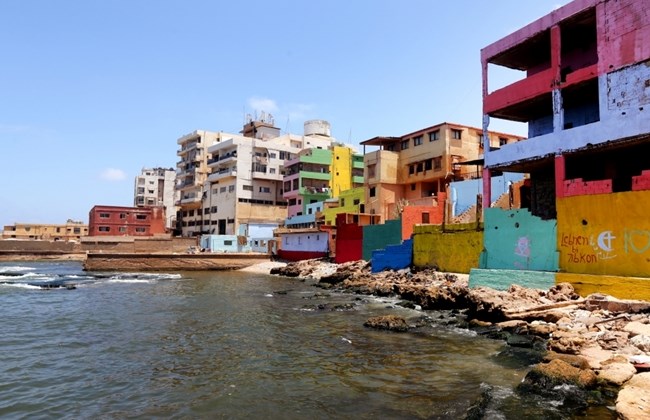Event

Come take a break during reading days, pick up a good snack from Renata's, and most importantly: Join us for a rare opportunity to turn up and support your fellow Urban Studies students! These are five very different projects, in a range of voices, all coming out of the shared experience of taking the URBS 400 Senior Thesis course in the Fall of 2017.
In the Spring 2018 Honors Seminar, students revise and refine their senior thesis papers with an eye toward publishing them in an academic journal or similar publication. They also write an a short op-eds on a policy point that comes out of their research and submit it for publication.
Times below represent the presentations plus all Q&A. Feel free to come and go within these times as you wish.
(Photo credit: The Daily Star/Hasan Shaaban)
Jana Korn, 2pm-2:20pm
My research is on sexual violence on public transportation systems, focusing primarily on the experience of college- age women in Santiago, Chile. Using survey data that I collected while living and studying in Santiago, I argue that the constant threat of sexual violence that a woman faces while on public transport conditions the way she both travels in her city and the way that she interacts with and experiences public space. This relationship, therefore, has important implications for gender equity and inclusion in the city more generally. My project concludes by providing a set of policy recommendations that the city should implement in order to make their system safer, not only for women, but for all users.
Tim Lazaroff, 2:20pm-2:40pm
In 2017, New York commuters experienced the ‘Summer of Hell’. Many are unaware New York Governor Andrew Cuomo coined the term to describe Amtrak repairs at Penn Station. I analyze why Cuomo created this crisis narrative, and why it spread to encompass other methods of transport. Then, I use the events of last summer to craft a model for what has happened in New York’s transit management, and use current events to anticipate what we can expect to happen going forward.
Kellen Sillanpaa, 2:40pm-3:00pm
Due to a lack of counselors and college readiness resources, twelve neighborhood high schools in Philadelphia rely on a college access program called GEAR UP to help prepare their students for college. I conducted a case study of GEAR UP at one of these schools. I used an original framework to determine whether the program abides by college access program best practices, and identified a series of factors that may affect GEAR UP’s ability to improve rates of postsecondary attainment in the city.
Emma Singer, 3:00pm-3:20pm
In recent years, the city of Philadelphia has seen a major increase in the push for bike infrastructure and greater bike ridership. This is the result of a Mayor’s Office fully committed to the idea of Complete Streets. That is, everyone, regardless of their mode of transportation, should feel safe on the street. This study determines that bike ridership is increasing in Philadelphia but not evenly across the city. It finds that there are several barriers to cycling, which low-income, people of color often experience to a greater severity. This paper finds that the Complete Streets rhetoric of improving traffic safety is not enough to encourage low-income, people of color to bike. In fact, it tends to dissuade existing diverse bicycle communities from being a part and claiming their right to the city. While the Complete Streets rhetoric suggests that any added bicycle infrastructure is good, I propose that more research be done to create ways that equity can be further imbued into the language of the movement.
Reece Sisto, 3:20pm-3:40pm
My project is an organizational and administrative analysis of a South Philadelphia general construction cooperative comprised entirely of undocumented immigrants from Mexico. Pitted against cooperative and political economic theory, my study reveals and complicates a unique paradigm for immigrant enfranchisement on the fringes of our city's formal economy, one in which shared cultural backgrounds and strong senses of social responsibility directly contribute to economic productivity.
